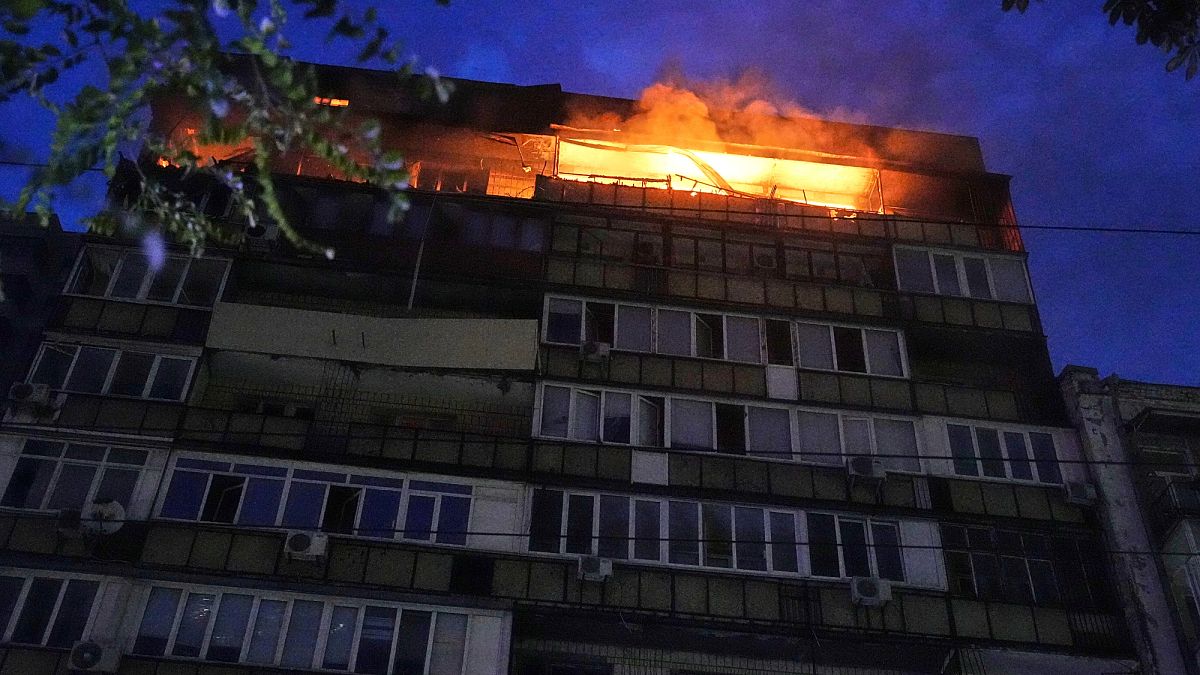

In recent days, the world has witnessed a flurry of intense geopolitical activities, sparking concern across continents. While conflicts in Ukraine, Somalia, Gaza, and Afghanistan escalate, there remains hope for resolution and progress towards peace. This overview offers clarity on these unfolding events, their impact, and ongoing international responses.
In Kyiv, Ukraine’s capital city endures a relentless series of missile and drone assaults originating from Russia. Local authorities have reported a tragic outcome, with at least two individuals losing their lives and others sustaining injuries as the strikes intensified. Residents faced disruption as they sought safety in underground metro stations amidst the sounds of exploding ordnance. Despite the chaos, the resilience of Kyiv’s civilians shone through as they quietly waited out the attack, highlighting their unwavering spirit in the face of adversity.
Alarming developments also unfolded in Somalia, where Al-Shabaab militants claimed responsibility for a devastating explosion at a military school. The group, seeking to challenge the Somali government’s authority, aims to impose its strict interpretation of Islamic law through such acts of insurgency. This incident underlines the ongoing struggle between the government’s efforts to stabilize the region and the insurgents’ attempts to sow discord.
Meanwhile, in the Middle East, Israeli air strikes in Gaza have resulted in the heartbreaking loss of numerous lives, including children. Humanitarian workers and medical staff in the region find themselves overwhelmed by the surge in casualties, as the area grapples with almost daily instances of widespread violence. The European Union has also reported an attack on a vessel in the Red Sea, illustrating the spillover effects of regional tensions. As the international community calls for restraint and dialogue, the hope for ceasefire agreements and peace talks persists, offering a glimmer of optimism for the region’s future.
Additionally, a significant move by the International Criminal Court (ICC) marks a potential turning point in global efforts to uphold human rights. The ICC has issued arrest warrants for leading Taliban figures, including their supreme leader, Haibatullah Akhundzada, citing crimes against humanity related to the persecution of women and girls in Afghanistan. This decision has been widely praised by rights activists, as it underscores the international community’s commitment to justice and equality. It highlights the court’s resolve to address serious human rights violations, aiming to ensure accountability and adherence to global human rights standards.
These current events illustrate the complex tapestry of global conflicts, with each situation requiring nuanced understanding and a strategic approach towards resolution. Despite the severity of these challenges, the international community’s dedication to finding peaceful solutions remains steadfast. Humanitarian organizations and diplomatic bodies continue to work tirelessly behind the scenes, advocating for resolutions that prioritize human safety and dignity.
As the world observes these unfolding events, there is an opportunity for reflection and action. Efforts to support affected communities through humanitarian aid, peacebuilding initiatives, and diplomatic engagements are paramount. By fostering collaboration and understanding, it is possible to navigate these turbulent times with the hope of emerging into a more peaceful and harmonious global community.
In these moments, empathy and solidarity play crucial roles in bridging divides, offering avenues for healing and reconciliation. The path to peace may be fraught with challenges, yet with collective determination and mindful perseverance, a brighter, more unified future can be envisioned.
Source: {link}
